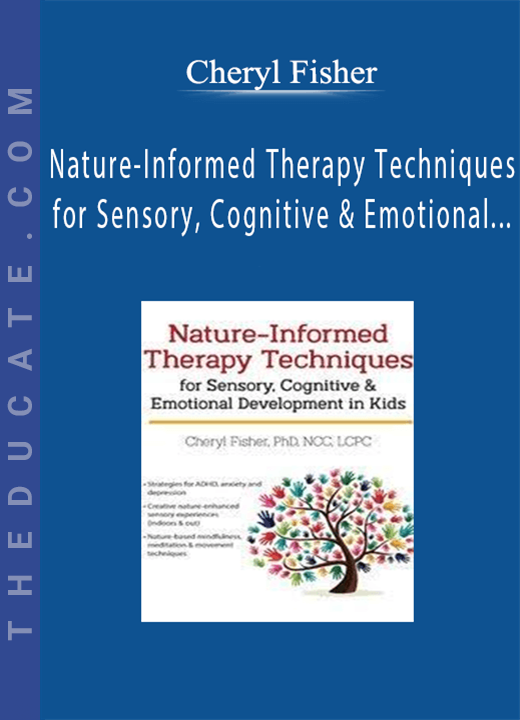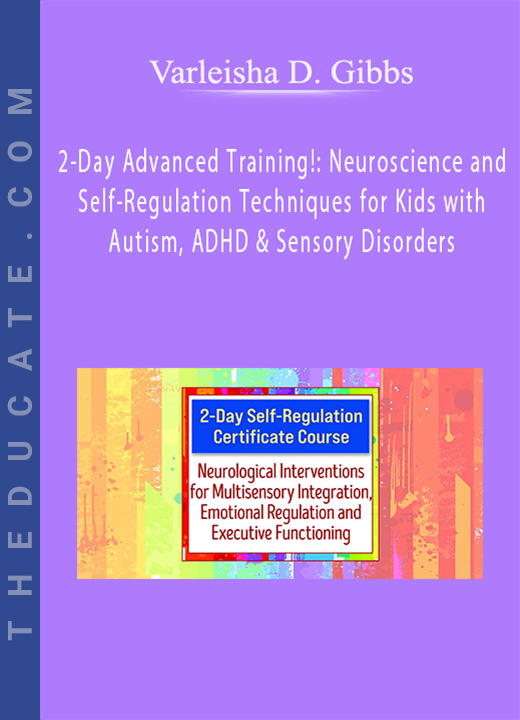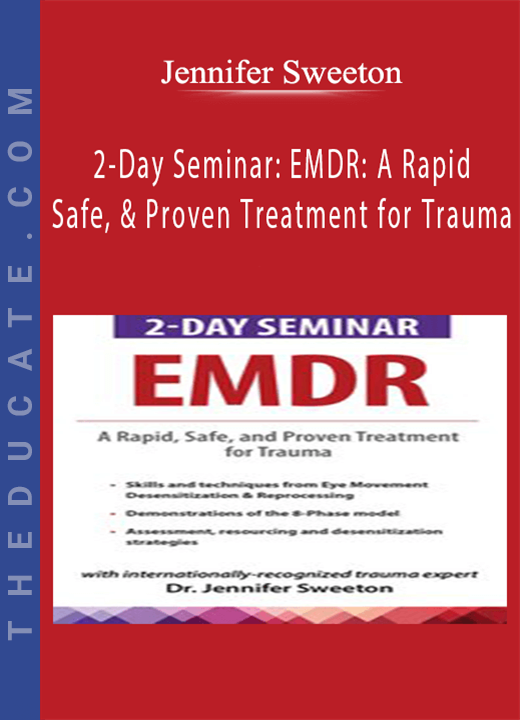Description
Nature-Informed Therapy Techniques for Sensory, Cognitive & Emotional Development in Kids – Cheryl Fisher
- Strategies for ADHD, anxiety and depression
- Creative nature-enhanced sensory experiences (indoors & out)
- Nature-based mindfulness, meditation & movement techniques
Epidemic proportions of children are diagnosed with ADHD, depression, sensory overload, and low self-esteem.
As therapists/educators, we are constantly looking for new tools and techniques that will truly make a difference in the overall health and well-being of children, while improving educational and therapeutic settings.
Outdoor play not only has the power to increase sensory regulation, attention, social skills, creativity, and problem-solving, but it’s free and readily available. Unfortunately, the average child spends less than 30 minutes playing in natural settings, and recess is the first activity to be omitted in time-constraints and used as a disciplinary consequence.
Today kids know more about engaging in gaming, tablets, and social media, than they do about climbing trees and spying on bird nests, planting seeds and watching plants grow, and interacting in the natural world.
Join psychotherapist, counselor-educator, author, and nature-lover, Dr. Cheryl Fisher to bring the benefits of nature-informed therapy and play into your clinical practice. The kids you work with will be:
- Self-confident
- Relaxed
- Emotionally self-regulated
- Empathetic
- Problem solvers
- Physically active
- Sensory integrated
- Creative
- Focused
This workshop will provide you with evidence-based practices in the area of nature-child direct engagement and overall wellness. Come explore a fresh, creative and innovative way to engage kids of all ages.
- Articulate three ways to integrate nature-enhanced principles into your practice.
- Construct three strategies to employ nature-informed tools and techniques for clinician self-care.
- Critique three ways that non-directive active movement in natural settings is beneficial.
- Develop nature-enhanced clinical applications designed to improve listening, attention, empathy and problem-solving while reducing aggression.
- Design a nature-informed treatment plan and apply it to a clinical case study.
- Choose at least three ethical considerations for integrating nature-informed therapies into clinical practice.
Overview
- Sensory Assessment Inventory and guided imagery
- Create a Time Diary- How much time do you spend in nature?
- Therapeutic Nature Enhanced programs
- Ethical considerations
NATURE-INFORMED TECHNIQUES FOR:
Cognitive, Emotional Development
- Increase focused attention
- Improve sensory integration
- Promote a calm but alert state
- Complex problem solving opportunities
- Promote confidence
- Stimulate creativity
- Increase empathy
Sensory Integration
- Promote less sensory overload
- Provide exposure to a variety of tactile stimuli
- Increase vestibular engagement
- Create a whole brain, whole body experience
Physical Development
- Posture
- Strength/balance
- Endurance
- Body awareness
- Immune system
- Sleep
CLINICAL APPLICATION:
Bring the Outdoors In
- Create natural lighting
- Integrate natural elements
- Nature bins
- Gardens
- Animal assisted therapy
- Tools for teaching mindfulness:
- Cloud spotting,
- Pebble meditation,
- Nature cards
Venture Outside
- Natural settings promote:
- Listening
- Focused attention
- Cooperative interaction
- Problem solving
- Creativity
- Additional Nature-Informed Tools
- Nature quests
- Wilderness therapy
- Horticulture therapy
Develop a Treatment Plan
- Nature-informed tools and the application of case studies
- Apply concepts of a nature-enhanced practice – craft a therapeutic homework guide
- Nature as a co-therapist in your practice







7 reviews for Nature-Informed Therapy Techniques for Sensory, Cognitive & Emotional Development in Kids – Cheryl Fisher
There are no reviews yet.